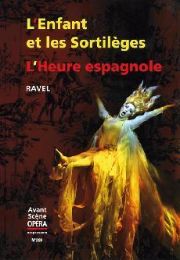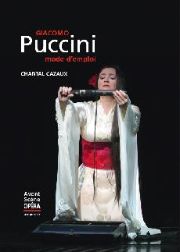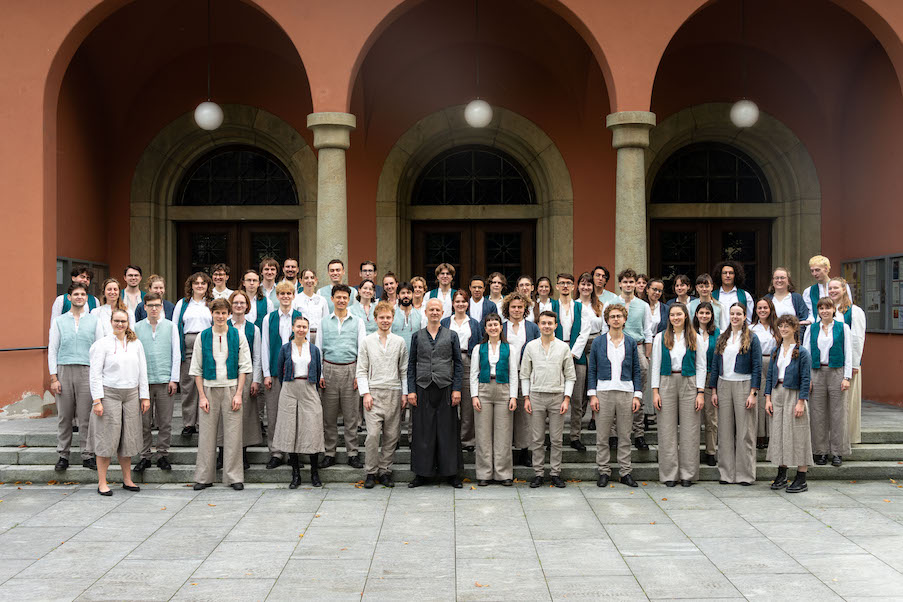Drama, comedy and enchantment
The last two issues of L'Avant-Scène Opéra are devoted to Puccini and Ravel.

L'Avant-Scène Opéra is renowned for its detailed presentations of operatic works (usually one per issue, sometimes two) in its bimonthly review, of which almost 300 opuses have already appeared since its creation in 1976. Some of the out-of-print back issues have been reissued in a completely updated version, as in the case of the latest publication, devoted to Ravel's two completed vocal stage works: the leste comédie musicale The Spanish Hour and the enchanting lyrical fantasy L'Enfant et les Sortilèges.
As with each of the richly illustrated booklets in this series, the complete libretti (bilingual where appropriate) are included, along with an in-depth commentary that deciphers, scene by scene, the relationship between music and stage action in an easily accessible way. A summary of the argument, an introduction, a comparative discography and a commented videography complete the book, as do numerous articles by various excellent authors - some ten in this case: These range from a biographical introduction to the author of the first libretto, Franc-Nohain, to an account from the diary of the second librettist, Colette, a psychological and linguistic analysis of the latter's libretto, reactions from Ravel's contemporary composers, aspects relating to the creation of the works or their staging, a study of Ravelian humor and a chronicle of the musician's stage aspirations.
In recent years, L'Avant-Scène Opéra has also published monographs devoted to great opera composers. Admired by many of his contemporaries (Ravel, Stravinsky, Webern, who found the score of La Fanciulla del West rich with a surprise in every bar) who recognized his undeniable talent as an orchestrator or the modernity of his harmony, Puccini's music suffers from misunderstandings that this work clarifies and dispels: the author of La Bohème does not seek to please, but to touch; if he depicts "little people" and their simple sentimental aspirations, it is neither sentimentalism nor simplism. Puccini knows how to hide art through art itself. The fact that the general public adores him does not alter the boldness and subtlety of his scores. If his music conveys intense emotions (which may upset the prudish) and truths (on this subject, Chantal Cazaux denounces the misunderstanding, due among other things to some interpretative drifts, which too easily assimilates Puccini to the verismo movement stricto sensu), His dramatic genius is intimate, depicting lives of thwarted aspirations and complex, vulnerable characters, using evocative colors or sound images, or prefiguring cinematographic processes (hence the abundant filmography of his operas).
In addition to a number of short studies situating the composer and his work, this "instruction manual" contains brief notes on some sixty emblematic performers of the past and present, as well as a discography and videography, not to mention abundant iconography. At the heart of this useful handbook is the presentation of the ten (or twelve, if we isolate each part of the Trittico) lyrical works by the Italian master, with their genesis, the circumstances of their creation, a summary of the action followed by a listening guide, deciphering the characters and the stakes (intentions, situation in Puccini's production and in history, etc.).
L'avant-scène opéra, N°299, Maurice Ravel: L'Enfant et les Sortilèges / L'Heure espagnole, 128 p., €28, New edition, Paris 2017, ISBN 978-2-84385-334-0
L'avant-scène opéra, N°PUC, Chantal Cazaux : Puccini, mode d'emploi, 192 p., 28 €, Paris 2017, ISBN 978-2-84385-309-8










